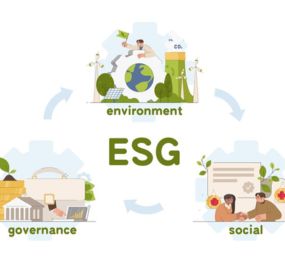Renewable energy investment trends are reshaping the landscape of corporate sustainability and Environmental, Social, and Governance (ESG) practices. The growing emphasis on renewable energy sources, such as solar, wind, and hydropower, is driving significant changes in how companies approach their ESG strategies and performance.
One major trend in renewable energy investment is the rapid increase in corporate commitments to clean energy. Companies across various industries are investing heavily in renewable energy projects to reduce their carbon footprint and meet sustainability targets. This shift is not only motivated by environmental concerns but also by the financial benefits of renewable energy, such as reduced operational costs and long-term energy security.
Another trend is the rise of green bonds and sustainable finance instruments designed to fund renewable energy projects. These financial products attract investors who are increasingly prioritizing ESG criteria in their investment decisions. By channeling capital into renewable energy initiatives, green bonds support the transition to a low-carbon economy and enhance a company's ESG credentials.
Technological advancements are also playing a crucial role in renewable energy investment trends. Innovations in energy storage, grid management, and efficiency improvements are making renewable energy more viable and cost-effective. Companies that adopt these technologies can improve their ESG performance by showcasing their commitment to cutting-edge, sustainable practices.
Furthermore, regulatory frameworks and government incentives are encouraging renewable energy investments. Policies such as tax credits, subsidies, and renewable energy mandates create favorable conditions for companies to invest in clean energy. Compliance with these regulations not only reduces environmental impact but also enhances a company's reputation and stakeholder trust.
The implications of these trends for ESG performance are profound. Increased investment in renewable energy contributes to a company's environmental sustainability by lowering greenhouse gas emissions and promoting cleaner energy sources. It also demonstrates corporate responsibility and governance by aligning business practices with global climate goals and stakeholder expectations.
In conclusion, renewable energy investment trends are significantly influencing ESG performance. Companies that prioritize renewable energy investments are better positioned to achieve sustainability targets, meet regulatory requirements, and enhance their reputation among investors and stakeholders. This shift towards clean energy is crucial for driving long-term sustainable growth and addressing the urgent challenges of climate change.
To register or learn more about the Forum please check here: https://www.leadventgrp.com/events/world-esg-and-climate-summit/details
For more information and group participation, contact us: [email protected]
















